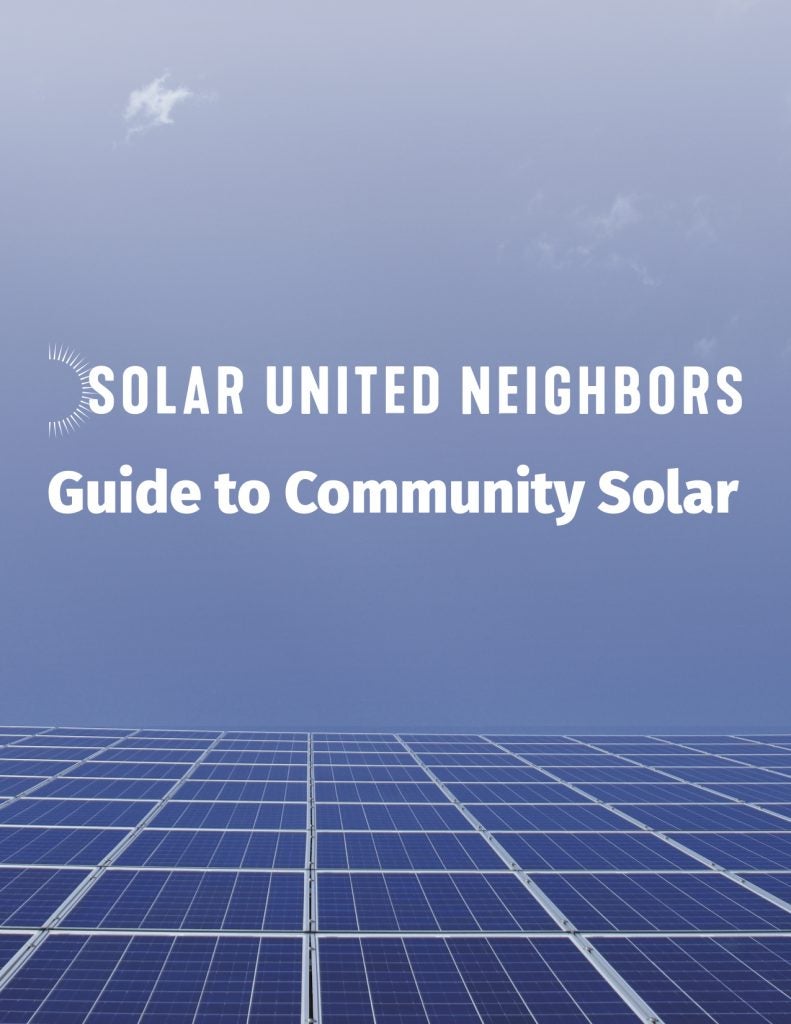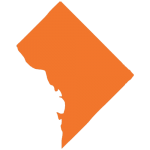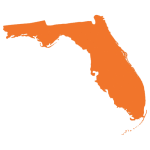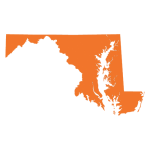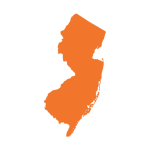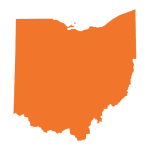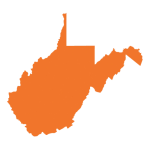Community solar
What is community solar?

Not everyone can go solar where they live. This may be because they rent. Or their roof may be a bad fit for solar. Community solar offers the benefit of solar if you can’t, or prefer not to, install solar panels on your home.
How community solar works
Community solar lets individuals, businesses, or organizations buy or subscribe to a “share” in a community solar project. When you join a community solar project, you receive a credit on your electric bill each month. The size of your share determines how much credit you receive.
Community solar is not available everywhere, yet. Your utility must agree to participate in community solar. Alternatively, some places require utilities to offer community solar.
Currently, 18 states and the District of Columbia have community solar. Additionally, a number of rural electric cooperatives and municipal utilities offer community solar as an option.
Check out our three-part webinar series about community solar:
- Episode 1, Community Solar Basics: Consumer Information
- Episode 2, Community Solar Policy and Programs
- Episode 3, Project Development: Grow Your Own
Find a community solar project near you
Community solar programs are expanding around the country. We’ve built a platform to help you compare your options. The list grows all the time. If you don’t see a project in your area, check back soon!
SUPPORT OUR WORK
Make a tax-deductible donation today to Solar United Neighbors to help more people go solar, join together, and fight for their energy rights.
All community solar is not created equal
Not all community solar projects are the same. Communities, individuals, towns, churches, and neighbors should have the right to develop their own community solar projects.
Unfortunately, in many places only utilities or large commercial developers can build them. Many utilities are using community solar’s popularity to rebrand their own projects. These utility-scale projects do not offer the same benefits of real community solar. That’s why we’re working to put more “community” into community solar.
Inflation Reduction Act and Community Solar
In 2022, Congress passed the Inflation Reduction Act (IRA). The IRA provides new incentives for community solar projects.
Starting in 2023, small community solar projects (under 1 MW) will qualify for a tax credit of of 30%. This credit is available until 2033. These projects can earn additional credits for meeting specific requirements:
- + 10% for meeting domestic content specifications
- + 10% if at a brownfield site or in a community directly impacted by fossil fuels
- + 10% if in a low-income community or on tribal land (by application)
- + 20% if part of a Low-Income Residential Building Project or Qualified Low-Income Economic Benefit Project
Larger community solar projects can also qualify for the above. But, these only apply at the same levels if they meet certain labor requirements.
Supporting projects that benefit you, the consumer
Is it a good economic deal for participants?
Joining community solar should help participants lower their electric bills . Or, it should offer a good return on investment. If possible, customers should be able to invest in or own part of the system.
Is it customer friendly?
The community solar program should make it easy for participants to subscribe and unsubscribe. Participants should be able to transfer their share if move within their utility’s service territory. It should also be easy for participants to understand what they are paying for. The program should inform subscribers of any on-going charges.
Does it benefit the community?
Real community solar provides benefits to the community beyond the electricity it generates. This is due to the shared-ownership nature of the project. These benefits include:
- job creation,
- providing added grid resilience, and
- an opportunity for low-income families to benefit from solar energy.
Resources
General
- Solar United Neighbors Guide to Community Solar – Principles for Putting “Community” in Community Solar.
- Community solar siting policy – These are the standards community solar projects should follow to integrate well into the community where they are built.
- Episode 2, Community Solar Basics: Programs and Policy – Solar United Neighbors webinar
- Shared Renewables/Community Solar – The Solar Energy Industry Association (SEIA), the solar industry trade group, on community solar’s growth and benefits.
- Community Solar FAQs – A backgrounder from the U.S. Department of Energy.
- National Community Solar Partnership – A community of community solar practitioners and supporters moderated by the U.S. Department of Energy.

For consumers
- Episode 1, Community Solar Basics: Consumers – Solar United Neighbors webinar.
- Shopping for Community Solar – Solar United Neighbors’ guide helps you get started.
- Residential Consumer Guide to Solar Power – A guide from the SEIA that covers the basics of solar energy.
- Evaluating community solar projects – Our first-of-its-kind platform that helps you find a community solar project.
For landowners
- Land leases
- Guide to Land Leases for Solar – This SEIA guide helps landowners understand the opportunities and implications of leasing their property for solar installations.
- Landowner Considerations for Solar Land Leases – This pdf from New York State Energy Research and Development Authority (NYSERDA) examines what to consider when leasing your property for community solar projects.
- Leasing Land Guide – This pdf from the PA Solar Center includes detailed guidance for landowners considering hosting a solar array. It also includes a sample land lease agreement in the appendix.
- Agrivoltaics
- Farmer testimonial video – From the Coalition for Community Solar Access (CCSA)
- The 5Cs of Agrivoltaic Success Factors – National Renewable Energy Lab (NREL) report
- InSPIRE Agrivoltaics Map – Projects all over the country that include an agrivoltaics feature
- Solar Grazing – American Solar Grazing Association (ASGA) resources including certification
- Virginia Pollinator Smart – The Virginia Department of Conservation and Recreation has resources to help developers build solar in a way that encourages plant and animal life to flourish.
- Native vegetation ecosystem + Solar study – Study reviews how surrounding solar arrays with native plantings improves water retention, reduction in soil erosion, and increases pollinator supply.
- Exploring Farming and Solar Synergies in Maryland – Agrivoltaics webinar and economic and soil health benefits to farmers.
For communities
- DOE’s Community Power Accelerator – “Connects developers, investors, philanthropists, and community-based organizations to work together to get more equitable community solar projects financed and deployed.”
For policymakers
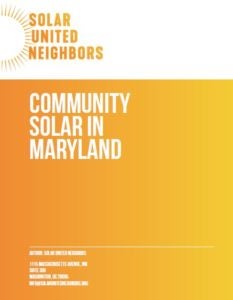
- U.S. Dept. of Energy Community Solar Best Practices Guide
- Expanding Solar Participation Through Community Solar – SolSmart provides a review of how community solar works, its benefits, and successful project examples.
- IREC Guiding Principles for Shared Renewable Energy Programs – A report on Interstate Renewable Energy Council’s approach to shared renewable energy program development.
- Land Use Considerations for Large-Scale Solar: Community-based Stormwater Strategies and Vegetation Management for Sustainable Solar PV Development. Issue brief by SolSmart.
- Consumer Protection for Community Solar – Clean Energy States Alliance presentation on the various models of community solar and consumer protection considerations.
- Consumer Protection for Low-income Families – National Consumer Law Center’s comprehensive report on key protections for low-income households participating in community solar programs.
- Low-income Solar Policy Guide – This article explains ways to help low-income people benefit from solar energy through community solar.
- Community Solar for the Southeast – The North Carolina Clean Energy Technology Center and Department of Energy have collaborated on this guide that examines barriers to community solar in the region.
- Exploring Farm & Solar Synergies – The Institute for Energy and Environment Research (IEER) released a paper in 2021 using Maryland-specific data to delve into the economic benefits of hosting solar for farmers in several scenarios.
- Model zoning ordinances – The Institute for Local Self Reliance (ILSR) references several sources for zoning ordinance models.
Our work
Solar United Neighbors has developed extensive community solar resources. We’ve fought to expand access to community solar. Our work has included:
- Developing better consumer education resources about community solar projects. Check out our community solar platform.
- Producing Year One and Year Two reports to track the progress of community solar in Maryland. This is a first-of-its-kind report on the Maryland community solar pilot program.
- Leading the charge to pass legislation in D.C. and Maryland that enabled community solar.
- Ensuring better access to the market by creating rules that facilitate low-income and local participation in the market. Limited programs or utility run programs tend to leave regular people out of the market and out of opportunities to make money from the market. Our work has particularly impacted program design in D.C. and Maryland.
- Helping solar owners and supporters to become effective solar advocates in their state.
- Advocating to enable community solar programs in Arizona, Ohio, Pennsylvania, Virginia, and West Virginia.
- Providing assistance to people interested in developing community projects themselves.
Learn more
We’ve compiled additional information about community solar in some states. Are you looking for information that isn’t covered here? Contact us.
Help support our work
Did you find this information helpful? Please make a tax-deductible donation to help more people go solar, join together, and fight for their energy rights.

